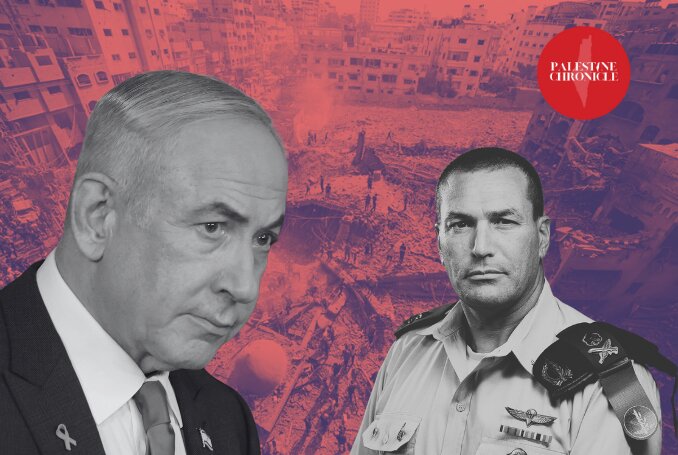Tehran-Gaza Wars not only attracted international attention to Israeli military operations, but also sparked rare internal opposition from the military reserves, one of the nation’s most elite institutions.
Prime Minister Benjamin Netanyahu’s response has been one of harsh criticisms and calls for their fire as numerous reserves openly claim to end Gaza’s operations. However, this response shows far more than just the control of government during the war. It highlights the growing rift between the Israeli ruling coalition and the nation’s established elite institutions.
Netanyahu’s support for punitive action against the dissenting reserves is a strategically calculated move, closely linked to his political survival and efforts to appease his far-right coalition partners.
Israeli reserves challenge the story of war
Understanding the importance of Israeli reserves is essential to grasping the broader outcomes of ongoing conflict. The Israeli military is often known as the “People’s Army” due to its reserves, primarily those with citizens from a diverse sector, such as doctors, technical experts, farmers and academics.
Following the Hamas attack on October 7th, Israel has experienced one of the most important mobilizations of the reserve in recent decades.
These citizen applicants have become essential for their operations in Gaza and other regions. In addition to their military functions, reserves serve as important links between military and Israeli society, often providing grounded, citizen-oriented views on conflict.
Some reserves have publicly opposed the war, demanding their conclusions or questioning their purpose. Such opinions are made clear in internal communication and in modest official statements, not acts of submission, but disagreement on expressions of fatigue and strategies.
Netanyahu responded with force, demanding that they be fired to maintain unity and support for the war. His stance suggests tolerance towards opposition, not as legitimate concerns of individuals serving in war, but as threats to state morale and war effort. This response is not only punitive, but also sends a clear message. Objections from the elite are not tolerated even when wearing uniforms.
The democratic image of Israel has been crushed
Netanyahu’s tactics follow the global populist trends that leaders seek to integrate power by outlawing the centre of old authority in the public sector. The military elites once out of control, but now they are yet another scapegoat. Netanyahu cements his ties with his political foundations, which are more clearly expressed in religious, nationalist and settler ideologies when framing the reserve claims as sabotage.
The message is clear. Loyalty to the state now should mean loyalty to the government.
Israel has always pride themselves on being a strong democracy in hostile regions. But when a high-ranking military officer is punished for expressing himself, his democratic veneer fades. Netanyahu’s intolerance towards criticism at home pays homage to the slides of authoritarian governance, which is identified with the opposition. Foreigners will find it increasingly difficult to reconcile their support for Israel with what they now think is internal oppression.
The impact of this situation is spreading across Israeli borders. Important international allies, particularly Western allies, have paid close attention to Israeli democracy and focused on freedom of speech among its elites. Efforts to limit criticism at home, especially during long and controversial military operations, could have an impact on Israel’s global reputation. Countries that provide military or political support to Israel could face pressure from citizens and human rights groups.
Netanyahu’s leadership divides Israeli society
Recent actions by Netanyahu highlight the serious division between his government and a key part of Israeli society, including the military. This situation raises concerns about country unity.
However, Netanyahu’s involvement in military affairs, particularly when it targets soldiers’ opinions in place of actual misconduct, it erodes trust.
The reserves feel their dedication is politicized. This development also harms the reputation of Israeli military neutrality, leading to mistrust among soldiers.
Another issue is the growing gap between the Netanyahu government and key Israeli groups such as experts, academics and technical experts. Before the war, they protested judicial change and are now worried about Netanyahu’s leadership with far-right allies.
They fear that governments are moving away from democratic values and wise decisions. By ignoring these concerns and supporting strong punishments for those who oppose them, Netanyahu marginalizes these important communities.
These communities are of great importance to Israel’s economy and military. Many Netanyahu’s supporters do not trust these elite groups and make his actions popular among them, but this has caused more division in the country.
There is a disagreement between military leaders and government. Israeli military forces need to have rules in place, but the Commander-in-Chief knows that it is very important to have skilled soldiers. Many reserves, especially those in elite units, have doubts about the strategy of war.
Some commanders may share their concerns. If Netanyahu punishes these soldiers to the army, it could lead to conflict. These conflicts lie between leaders who are thinking about long-term success and governments that focus solely on short-term politics.
The hostage crisis will make things worse. The hostage family that Hamas holds is angry. Netanyahu believes he continues the war to save his work, rather than liberate his loved one. They punish soldiers who want peace, as necessary for hostage trade, but these families are more ignored.
Ultimately, Israel must make a difficult decision. Countries can choose to continue their internal conflict and become more isolated. Or, they can seek peace within it and rebuild their trust in that democratic system.
How Israeli leaders deal with this challenge will affect the stability of the country and shape how other countries perceive Israel. Furthermore, it affects Israel’s relationship with its major allies. The choices made could have serious implications for Israel’s future both nationally and internationally.

